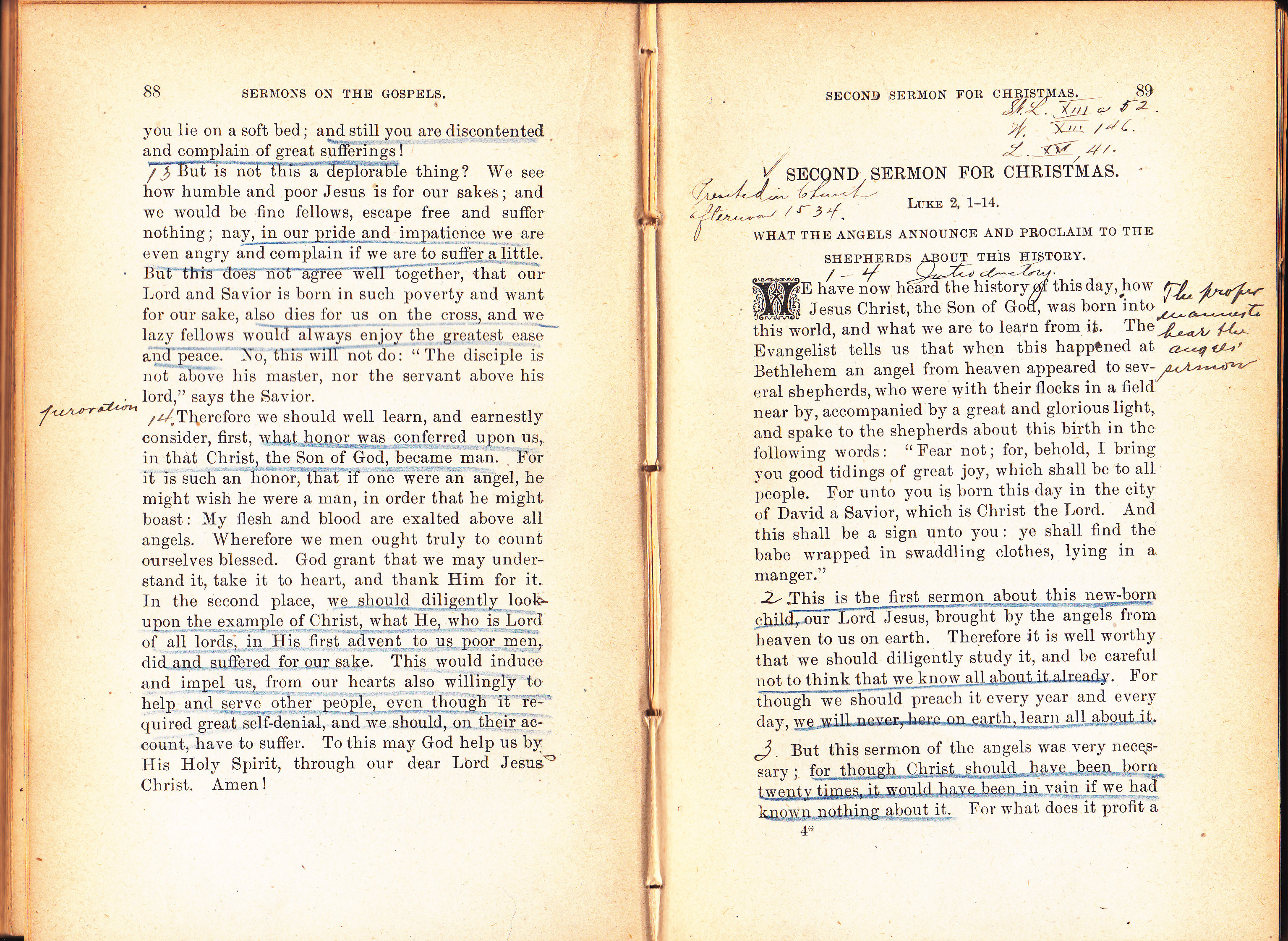
Screen shot Aug. 23, 2019. I am unable to find the original, am copying it here from the ELCA discussion group on Facebook, permalink immediately below, for research purposes.
https://www.facebook.com/groups/387419187942396/permalink/3255864907764462/
The meme was posted Thursday, Aug. 22. Several commenters asked the source, and at least two of us posted citations and other information. My screen shots from a 19th-century history of the Reformation appear below, along with one in 1957 from the Concordia edition of Luther’s works. Full citation at:
Volume 22, “Sermons on the Gospel of St. John Chapters 1-4” Page 55. https://en.wikisource.org/wiki/Luther%27s_works

xxx
My comment to the FB thread was as follows: “I tracked it down in Google Books in a 19th-century “History of the Great Reformation of the Sixteenth Century” by Jean Henri Merle d’Aubigné. The context seems to be the Peasants’ Revolt of the 1520s. (I’ll attach a screengrab.) But a cite from Luther’s Works would be better.”
[CITE: Jean Henri Merle d’Aubigné, History of the Great Reformation of the Sixteenth Century in Germany, Switzerland, etc. Philadelphia: James M. Campbell & Co., 1844. Google Books.

xxx

Matthew Barrett, “Luther’s neglected sermons on John’s Gospel,” Credo Oct. 4, 2017 https://credomag.com/2017/10/luthers-neglected-sermons-on-johns-gospel-matthew-barrett/
A brief word about the history of these sermons (and here I am following Pelikan, who elaborates upon the history more than I will). Johannes Bugenhagen (1485-1558) occupied the pulpit as the parish pastor in Wittenberg (it’s hard for 21st century American readers to understand, but some towns had but one or two pulpits). Luther was called upon to step in and preach in Bugenhagen’s absence. Invited by King Christian III himself, Bugenhagen was off to Denmark in 1537 where he would assist with church reform.
The timing was anything but ideal. Suffering from various illnesses, Luther’s body was flirting with death itself. It was a scary time for Luther’s disciples. Yet Luther was unbelievably resilient, surviving the sickness, only to return to the study to prepare sermons for Saturdays and Sundays. We read in a July 5th, 1537, letter to Bugenhagen: “I have begun to preach and lecture once more; in fact, yesterday I preached in your place. …Christ lives; and we are Christs—with and without the apostrophe (Christi sumus in nominative et genitivo).
The task would prove more challenging than Luther imagined. Not only did each week demand multiple services and sermons but Luther’s body had not recovered entirely. Instead, illness revisited, making preaching a demanding task. “I am so overloaded with tasks and so troubled with sicknesses that I have often been compelled, and still am, to leave my duties unperformed.”
https://en.wikipedia.org/wiki/Jean-Henri_Merle_d%27Aubign%C3%A9
The first portion of Merle d’Aubigné’s Histoire de la Reformation – History of the Reformation of the Sixteenth Century – which was devoted to the earlier period of the movement in Germany, i.e., Martin Luther’s time, at once earned a foremost place among modern French ecclesiastical historians, and was translated into most European languages. The second portion, The History of the Reformation in Europe in the Time of Calvin, dealing with reform in the French reformer’s sphere, exhaustively treats the subject with the same scholarship as the earlier work, but the second volume did not meet with the same success.





